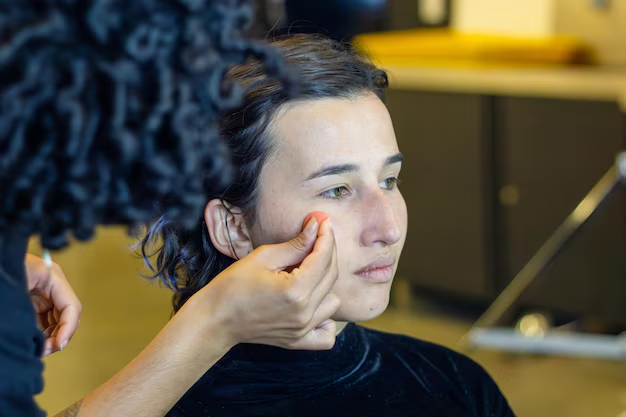Acne Rosacea: Unraveling the Mystery—Is It an Autoimmune Disease?
If you've ever faced the discomfort of rosacea, you're not alone. This perplexing skin condition has puzzled patients and researchers alike, raising the critical question: Is acne rosacea an autoimmune disease? Let’s dive into the heart of this question, exploring the nature of rosacea, its possible links to autoimmune diseases, and what this could mean for those seeking answers.
Understanding Rosacea: More than Just a Skin Condition
What is Rosacea?
Rosacea is a chronic inflammatory skin disorder that primarily affects the face. It often manifests as redness, swelling, and acne-like breakouts. People with fair skin seems to be more commonly affected, but it can touch anyone. The symptoms typically come and go, with flare-ups often triggered by a variety of factors such as sun exposure, spicy foods, or stress.
Four Subtypes of Rosacea
Rosacea is not a one-size-fits-all condition. There are four main types, each with distinct symptoms:
- Erythematotelangiectatic Rosacea: Characterized by redness and visible blood vessels.
- Papulopustular Rosacea: Resembles acne with bumps and pus-filled spots.
- Phymatous Rosacea: Leads to thickening of the skin, often on the nose.
- Ocular Rosacea: Affects the eyes, causing redness and irritation.
Understanding these subtypes is critical for anyone trying to unravel the complexities of rosacea.
The Autoimmune Connection: Fact or Fiction?
What Is an Autoimmune Disease?
In autoimmune diseases, the body's immune system mistakenly attacks its own cells. This can lead to chronic inflammation and damage to tissues. Conditions like lupus, rheumatoid arthritis, and multiple sclerosis fall into this category. The key element here is the immune system's overreaction.
Current Understanding of Rosacea
Rosacea is fundamentally an inflammatory condition. While it shares some inflammatory pathways with autoimmune diseases, it hasn't been strictly classified as one. However, recent studies suggest that the immune response in rosacea might have autoimmune-like features, intensifying the debate.
Research Highlights
Some studies indicate that people with rosacea have a heightened immune response. Specific proteins known as cathelicidins and antimicrobial peptides are often found in higher levels. These proteins play a crucial role in skin immunity but can cause inflammation when dysregulated. This could align rosacea more closely with autoimmune phenomena.
Triggers and Lifestyle: Navigating Everyday Challenges
Common Triggers of Rosacea
Understanding what can set off a rosacea flare is vital in managing the condition effectively. Here are some common triggers:
- Diet: Spicy foods, hot beverages, and alcohol
- Weather Conditions: Extreme temperatures and sun exposure
- Emotional Factors: Stress or embarrassment
- Skincare Products: Products containing alcohol or fragrances
Lifestyle Adjustments for Managing Rosacea
While not all triggers are avoidable, certain lifestyle changes can provide relief:
- Sun Protection: Use a broad-spectrum sunscreen daily.
- Dietary Modifications: Keep a food diary to pinpoint and avoid triggers.
- Stress Management: Practice techniques like yoga or meditation.
- Skincare Routine: Opt for gentle, fragrance-free products.
Embracing these changes can empower individuals with rosacea to live more comfortably.
Treatment Landscape: Current Options and Future Directions
Standard Treatments
Today’s treatment options aim to control symptoms and prevent flare-ups. Some of the most common treatments include:
- Topical Creams: Such as metronidazole or azelaic acid to reduce inflammation.
- Oral Antibiotics: Low-dose doxycycline is often prescribed.
- Laser Therapy: Effective for reducing redness and visible blood vessels.
Emerging Treatments
The quest for a more effective solution is ongoing, with several promising avenues:
- Immunomodulators: These aim to adjust the immune response, providing a tailored approach.
- Cutting-edge Technologies: Laser and light-based therapies are being refined for greater precision.
The future holds hope as researchers continue to unlock new treatments by better understanding the role of the immune system in rosacea.
Psychological Impact: Beyond Physical Symptoms
Coping with Emotional Challenges
Rosacea isn't just a physical condition; it can significantly impact one's emotional well-being. Many individuals report:
- Self-esteem Issues: The visible symptoms can lead to a decrease in self-confidence.
- Social Anxiety: Avoidance of social situations fearing judgment.
Understanding the emotional side of rosacea is crucial, highlighting the need for a compassionate, holistic approach to treatment.
Support and Resources
Finding support can make a substantial difference:
- Support Groups: Both online and in-person, sharing experiences and tips.
- Counseling Services: Professional guidance to address psychological burdens.
Connecting with others facing similar challenges can lighten the load, creating a community of care and understanding.
Insights and Reflections
Unpacking whether acne rosacea is an autoimmune disease reveals much about this enigmatic condition. While it shares some autoimmune features, more research is needed to establish a definitive link. Understanding rosacea on multiple levels—from triggers and lifestyle adaptations to treatment and emotional support—provides a comprehensive picture. By integrating these insights, those affected by rosacea can navigate the complexities of their journey with greater clarity and confidence.
Summary: Key Takeaways for Managing Rosacea
- Understanding Rosacea: Four subtypes with varied symptoms; knowing yours aids management.
- Autoimmune Debate: Rosacea shares immune features but isn’t conclusively an autoimmune condition.
- Common Triggers: Dietary choices, weather, stress, and skincare products can provoke flare-ups.
- Lifestyle Tips:
- ☀️ Use daily sunscreen.
- 🧘 Manage stress with relaxation techniques.
- 🥗 Modify diet by keeping trigger diaries.
- Treatment Overview: Includes topical creams, antibiotics, and innovative therapies.
- Emotional Support: Seek support groups and professional counseling to help cope with psychological impacts.
Empowered with knowledge, those experiencing rosacea can make informed choices and take action toward symptom management and improved well-being.

